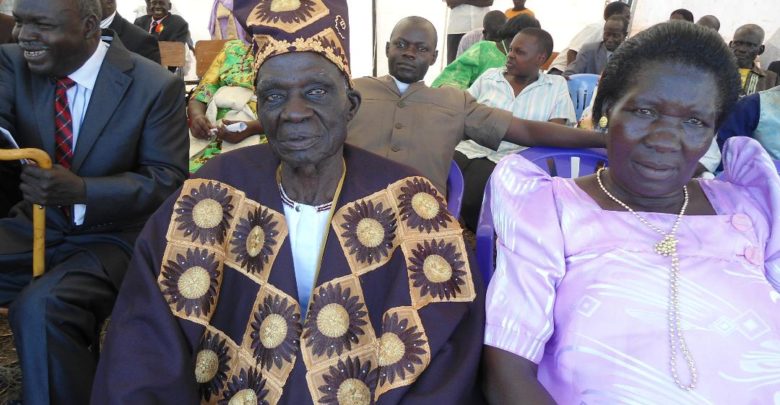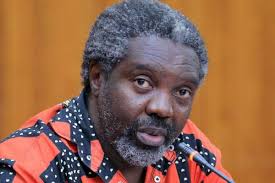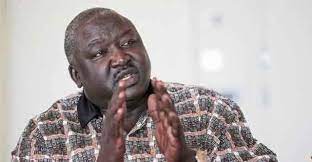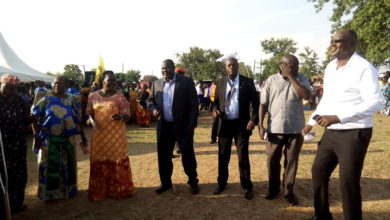
AgricultureNational
UGANDA: AKERA CONFRONTS BRITISH ON TOBACCO LAW, GOES AHEAD TO FARM
“I became the biggest Tobacco flue barn producer in the British oversea Empire and the only one with his account in the Bank after Catholic Church in Northern Uganda,” recalls Ananiya Akera Kerawegi when the author interview him, he was 99, a renowned farmer in Acholi.
.GULU-UGANDA: Akera began growing tobacco in 1946 at the time the Uganda Protectorate banned Africans from possessing a farm of more than one acre.
In violation of the British-American Tobacco Company law which states that no African shall not grow tobacco in more than quarter acre
After graduating from Makerere University in 1941 in Bachelor of Arts in education, Akera was liked by the British and given a rank of a cadet officer.
He studied education and his background found him posted in Gulu High school and later transferred by the British to Buwalasi teacher’s college as the headmaster but he decided to throw in the towel for tobacco.
“The British undermined Africans to excel in education and only clerks were encouraged and low level study were permitted and had low pay,” Akera said “forcing me to initiate large scale tobacco farming,” he added.
The British moved in to arrest him (Akera) but he raised huge dust amongst Acholi district Legisco involving top shots such as Okeny Atwona Tiberius, Otim Tom the cultural chief of Lango, and Antony Opua rebuked the provision governor Sir John Hasthern Hald who had gone Akera Farm to ban him to his fortune, the governor was backed off.
Akera said his first production on an acre raised him shs6, 025 and subsequent six acres tripled the revenue he got.
Akera started to grow Tobacco in 1946 in a place called Gen Cingi in Koro sub-county 4 kilometer on Gulu-Kampala high way, because at the time the government undermined teachers and paid University graduate at only shs90, 000 while medical workers went for 270, 000
“This was a disparity at the rate and we never welcomed it,” Akera said. The former teacher of Ugandan late president Dr. Apollo Milton Obote in Gulu High School said by his examples the British grew jealous and began on a wide search for Land in East Africa.
The British went ahead and banned Akera from growing crops at a large scale and stopped him from getting seedlings from Bungatira where British American Tobacco had its nursery beds.
When the matter went fragile, Lango and Acholi legislative Assemblies sat down and mounted pressure on the BTA under the British Protectorate.
The Assemblies ruled that Akera had the mandate to become a commercial farmer; however the colonial government Okayed him but only banned him from acquiring seedlings from them, the only suppliers.
“Their methods did not cow me and I opened my seedlings in Lakwatomer and they were greedy and racist towards Africans whom were considered inferior and could not manage large farms,” Akera said.
Maneuvering through the tight, Akera was opened way to sell his tobacco at the rate of British Rhodesia farmers’ scale which was $3.5 dolor per kilo gram
Failure to successfully block him, the devised a new means of assimilating Akera into their system by building him one small tobacco Barn which did not anyway fit his proceeds. Later on he extended this ban to accommodate three acres harvest using his earning.
While in Lakwatomer, Akera introduced cabbage, Lucite, Tomatoes and citrus fruits and pawpaw imported from Kenya which he introduced on his farm.
He imported ox-ploughs, tractors from Kenya through Railway to Jinja and used ferry to deliver them to Atura in the present Oyam district.
“I forced myself to sell tobacco in a fresh leaves for flue clued tobacco because it sold for more,” he said “I became wealthy and used my earnings to settle salary claims of Gulu district civil servants” he added.
Akera said all East African Tobacco growers learnt a lesson from him and all of them became on equal standards with European White Settlers in Zimbabwe.
Having been defeated, the British the honored Akera with a BAT troupe in recognition of his Agricultural achievements. At the time, the Uganda Credit Bank was the only one banking farmer’s money.
By 1950, he became the first African to save money in the bank whose amount was equal to the Catholic Church. Akera employed over 70 causal workers on his arm, the biggest labor force in northern Uganda.
Before Amin took over Obote I government in 1971, Akera was producing 34 percent of Tobacco in Uganda which later qualified him to take over all contracts from BAT and Indians to build Barns across the region.
“A commercial bank was then introduced in Gulu where my money was transferred because it was risky to withdraw from Kampala to pay my workers,” he said.
Many of the workers on Akera’s farms were Sudanese Refugees who migrated back to Sudan after Anyanya war which was launched by Sudanese and later fled into Uganda.
Akera the cowed to grow Tobacco in 1970 after the UN Resolution which declared that Tobacco was a drug and felt in secured thus dropped it for maize, rice and soya beans growing on the same farm.
He later fled to Exile in Sudan during Amin’s regime in 1977 when Arch Bishop Janani Loum was murdered by Idi Amin.





